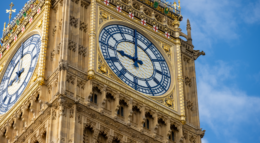
May must deliver on mental illness pledge
Professor Simon Wessely says the Prime Minister must match her stirring rhetoric around mental health provision with the investment required to deliver the services patients need.
Theresa May put the plight of those with mental illness who don't have proper access to care, at the heart of her vision for government.
But we have yet to see what that means in policy and practice. Rumour has it that she will use her party conference next week to respond to the recommendations of the Taskforce on Mental Health which called for a range of measures to ensure that people with mental illness do get the high quality services that they need. Much has already been promised including a commitment to spend an extra £1 billion a year on mental health care by 2020. Work is already underway at the Royal College of Psychiatrists to support NHS England with the implementation of the targets for access and waiting times including the treatment of psychosis, and for those who need talking therapies.
But as I write, there is a danger that these hopes and the progress made so far, could be swept away by the pressures on funding in the NHS which are building like a wall of water on the horizon.
The signs of trouble are everywhere. In her annual investigation of how much clinical commissioning groups are spending on mental health services in their areas, the former shadow minister for mental health, Luciana Berger found that at least 73 communities will see their GP mental health budgets slashed this year.
The situation was summed up by the Public Accounts Committee in their recent report which says that the "laudable ambition" to bring about parity of esteem between the treatment of mental and physical health is under threat because of pressures elsewhere in the NHS.
We believe passionately that health services should reflect the individual needs of communities and recognise the important role that clinical commissioning groups (CCGs) have to play in that. The Royal College of Psychiatrists is supporting the development of tools to enable people to see how their commissioners are performing. But more is needed. One of the Taskforce's recommendations was to require CCGs to report on investment in mental health and to increase investment in mental health services each year at a level which at least matches their overall allocation increase. There is no doubt, we need to increase the pressure and scrutiny on CCGs.
If you have a heart attack – no matter where you are in the country, you can count on a well-equipped ambulance with highly trained staff to come to your aid. But if you have a mental health crisis you may have to wait up to 72 hours in a police cell for an initial assessment. The independent commission on acute care, supported by the Royal College of Psychiatrists, found that each month 500 mentally ill people have to travel more than 50 miles from their homes to get a hospital bed.
Good mental health is not an optional extra. Severe mental illness can be as debilitating and as deadly as cancer or stroke and deserves equal treatment from the health service. Theresa May is of the generation who witnessed Margaret Thatcher, on her first day in office, quoting St Francis, "where there is discord, may we bring harmony… where there is despair, may we bring hope". And how the clip was replayed in the following years, juxtaposed by images of riots and miners on the picket line. Although the former Prime Minster spoke in earnest, perhaps she had succumbed to the temptation to over-promise. The current Prime Minister is famed for her pragmatism and ability to deliver. So I absolutely believe not only that she spoke in good faith on the need for better access to mental health services. But more importantly, that it cannot have been an implicit pledge made without a matching determination to do whatever is necessary to make the investment and bring about the change to ensure mentally ill people do have access to the care that they need in the coming years.















